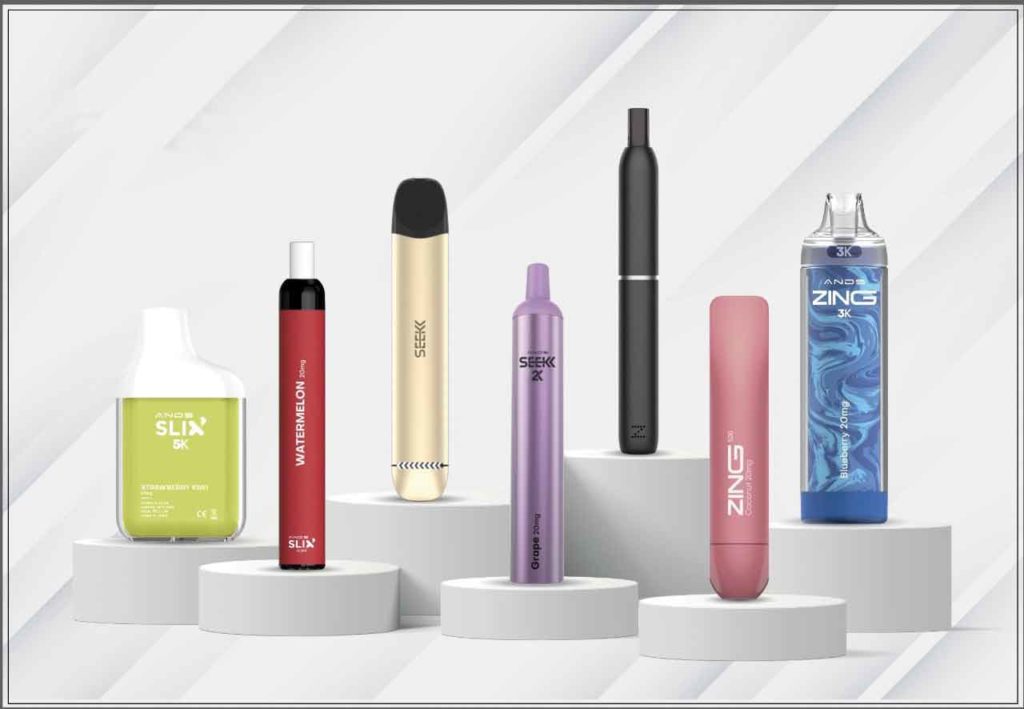On a Mission
- Also in TR Print Edition
- January 1, 2023
- 0
- 8 minutes read


ANDS has set out to promote a smoke-free lifestyle in the Middle East and North Africa region.
By Stefanie Rossel
At first glance, the Middle East and North Africa (MENA) region holds massive potential for the sale of reduced-risk products (RRPs). Of the 547 million inhabitants, 140 million—mostly men—smoke. Smoking prevalence is generally high, with Jordan leading the area with a record smoking rate of 65.3 percent among males, and it is still increasing. But the promise comes with many hurdles. Of the 22 markets in the region, 14 have banned electronic nicotine-delivery systems (ENDS), and of those markets where ENDS are legal, several have implemented prohibitively high taxes on these products.
Despite the often adverse business environment in the region, Fadi Maayta has ventured into the ENDS market. In 2020, he co-founded Alternative Nicotine Delivery Solutions (ANDS), which he heads as president. Headquartered in Dubai, the company sells and distributes vaping products and heated-tobacco products (HTPs) across the Middle East and Africa, including in the United Arab Emirates (UAE), Saudi Arabia, Kuwait, Jordan, Egypt and Bahrain.
Maayta, who at the recent Global Tobacco and Nicotine Forum described MENA as a forgotten region in terms of tobacco harm reduction (THR), says his company’s mission is to provide adult smokers with high-end, verified and tested alternative nicotine-delivery solutions promoting a cigarette-free region. He believes there are two main reasons why THR in the MENA region is making only slow process: misinformation and isolated policymaking, which stands in stark contrast to the approach taken in the United Kingdom, the United States and several European countries. “These countries have made huge steps toward reducing smoking incidences through switching smokers and encouraging nicotine alternative solutions while the Middle Eastern countries are still treating e-cigarettes as combustible cigarettes,” says Maayta.
According to him, disproportionate taxation of ENDS is a symptom of this wrongheaded approach. In January 2022, Bahrain, Saudi Arabia and the UAE implemented 100 percent custom duties on e-cigarettes, from 5 percent before 2022, making e-cigarettes far more expensive than the illicit products that evade all taxes, Maayta points out.
“In Jordan, the government applies 200 percent excise tax on e-cigarettes, which makes their prices relatively higher than combustible cigarettes,” says Maayta. “The price of a disposable device of 500 puffs is five times higher than the price of a pack of cigarettes. This kind of fiscal treatment will cause two effects: unprecedented numbers of illicit trade in e-cigarettes and a relapse of [former] smokers to smoking combustible cigarettes.” Meanwhile, state budgets and legitimate companies are deprived of revenues.

Differentiation Needed
To accelerate the transition toward safer alternatives in the region, governments need an unambiguous strategy of communicating the benefits and risks, according to Maayta. “First, we need to be clear [that] these products are not risk-free, and they are addictive,” he says. “We don’t recommend the use of these products by minors or nonsmokers. On the other hand, these products represent a better chance for smokers who cannot quit smoking conventional cigarettes. Countries need to define differential fiscal and regulatory frameworks that will encourage smokers to switch to these products, having the right information backed by science while explaining to smokers and users the advantages to switch to these alternatives and explaining that they are not 100 percent risk-free. These products should be taxed and regulated differently from combustible cigarettes, and more open and controlled communications should be allowed with users while at the same time protecting minors and nonsmokers.”
Despite the challenges operating in the Middle East and North Africa, he is confident about the future of ENDS there. “I can see that this category will be growing further in the region,” says Maayta. “My only concern is that Middle Eastern countries will be missing out on a lot of chances to reduce smoking incidences and save the lives of millions of smokers by being resistant to recognizing the role of ENDS in making smokers switch from combustible cigarettes. We therefore advise government and regulatory authorities to think differently about this category, allowing further development in research and development and allowing further communication with adult smokers.”
The experience of Egypt is encouraging for the future of RRPs. In December 2021, the region’s most populous country, where 42.3 percent of men and 0.4 percent of women smoke, lifted a ban on e-liquids and cartridges and subjected them to regulation. Vaping products and e-liquids must be compliant with Egyptian standards and are subject to VAT and/or excise tax. Egypt also recently legalized HTPs.
ANDS has not yet launched its products in Egypt, as authorities took time to develop and validate the product registration process. “But this has been expected because these products are new to the Egyptian market, and usually, new products take time to be normalized in such markets,” says Maayta. ANDS has big plans for Egypt, which represents a big addressable RRP market given the country’s high adult smoking rate.
Comprehensive Product Range
Setting up a corporation with mass operations amid a pandemic was challenging, according to Maayta. but with its experience and determination, the team was able to achieve the desired expansion and commercial success.
Prior to creating ANDS, Maayta worked in various senior positions with Juul and Philip Morris International throughout the region. “Through the past three years, we have learned a lot, faced many challenges, succeeded in some and failed in some—but overall, I’m proud of what the company has achieved so far and how the team of professionals have made this happen,” he says. “But more importantly than the commercial success is that we are playing a big role in changing the mindset of our audience regarding the ENDS category.”
ANDS currently has more than 10 brands representing different categories of ENDS, including disposables, closed systems, open system liquids, zero-nicotine disposables and HTPs. “Within the vape category, we have different volume sizes, number of puffs and a wide range of flavors,” he says. “Our plan is to have a total-category solution that ranges from vapes and HTPs to smokeless products, like nicotine pouches and patches, to cover different needs of smokers and users. Our plan is in line with the concept of population harm reduction, which aims at having products with the potential [for] risk reduction while being accepted by the population of smokers.”
In addition to distributing products made by other manufacturers, ANDS has registered three HTP and vapor brands under its name: Slix, Zing and Seek. “We have plans for far more advanced technologies that we will reveal in 2023,” says Maayta. “We are also planning to have smokeless products like patches and pouches in our portfolio for the next year, as these products are getting more attention by health authorities and harm reduction advocates.”
To prevent underage use, ANDS has developed and implemented the “Sentinel Program,” which monitors sales channels to make sure that the company’s products’ packaging and marketing practices are not appealing to minors and nonsmokers.
Sustainability also plays an important role at ANDS. “We are making sure that our products have a route to be disposed of properly, and some of the materials used in them are being recycled as well,” says Maayta.

